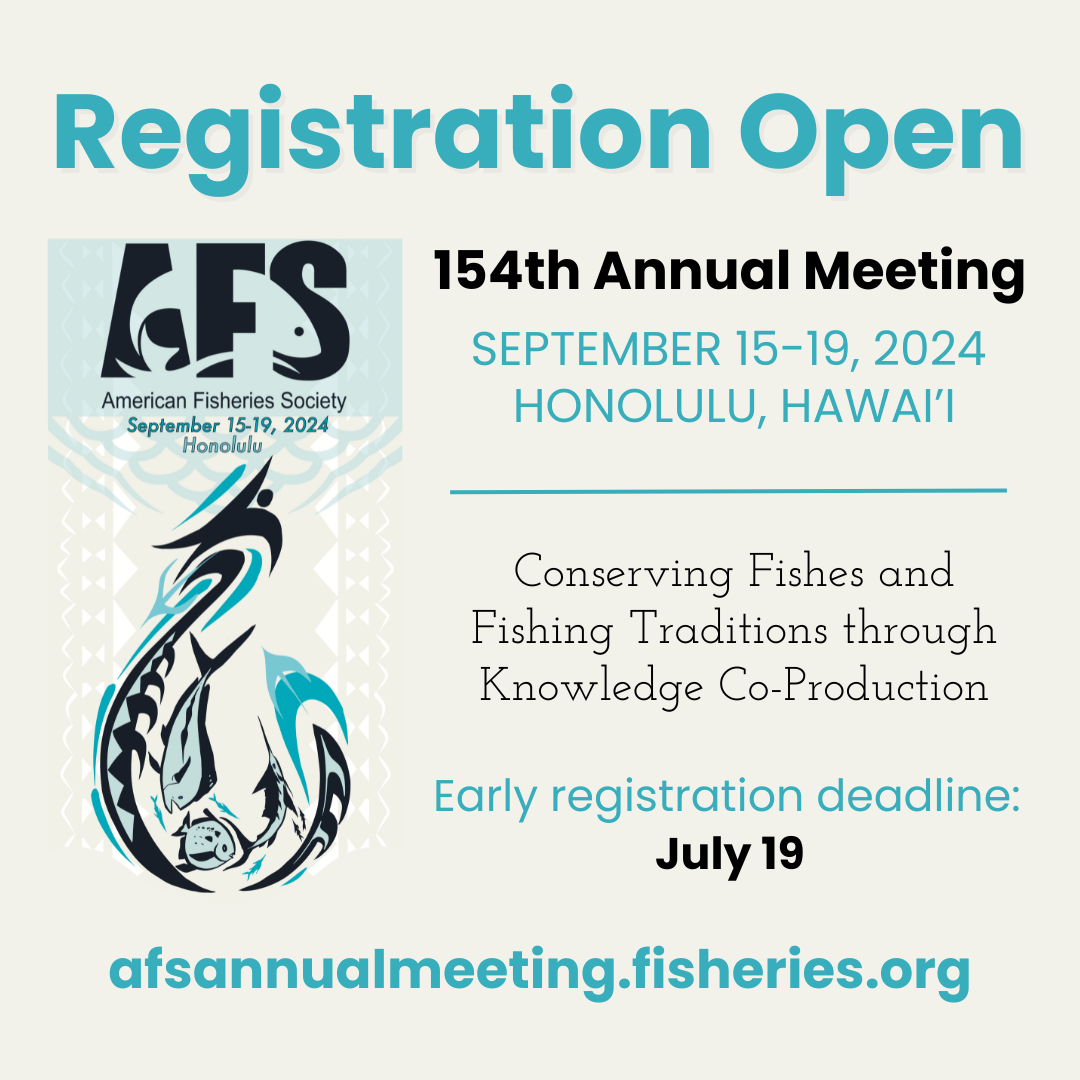By Thomas E. Bigford, Policy Director. E-mail: [email protected]
It’s been a busy week in what will be a busy year. As an AFS employee and president of the Fish Habitat Section, I’m preparing for the mid-year Governing Board meeting in Mystic, Connecticut. We’re hoping to accelerate efforts to shift the Society’s policy work toward the more proactive, engaged approach approved at the Annual Meeting in Kansas City last August.
I recently stumbled upon a “Director’s Line” on public policy penned by acting AFS Executive Director Robert Kendall (1999). Although Kendall wrote the piece in 1999, it could’ve been 2017. Then, as if to hammer home a point, media coverage exploded on the “March for Science” planned for Earth Day. The stars seemed to align. AFS and society are entering a challenging phase offering promise with a dose of anxiety. Allow me to explain.
As reported in January’s Policy Column (Pool 2017), AFS is well on its way to a new way of applying its collective scientific knowledge to resource management and then translating those lessons into policy and education. I am heartened by the unanimous support through all levels of development, review, and approval. This year will be extra busy as we pursue policy opportunities while also revising Society guidance and procedures to reflect our new approach. By the time you read this column, I expect that those revised Society documents will have been approved by the Management Committee on February 17 and the Governing Board on March 1.
At the same time, your Society is working diligently to implement our “Future of the Nation’s Fisheries and Aquatic Resources” report. Whether we’re developing a new continuing education course for Tampa on the National Fish Habitat Partnership’s latest 5-year assessment of the nation’s fish habitat; joining with the Consortium of Aquatic Science Societies to sponsor a shared booth at the annual Minorities in Agriculture, Natural Resources, and Related Sciences conference; or providing fisheries expertise to the U.S. Forest Service’s strategic planning effort, we are working hard to be more relevant.
This evolution had a few hiccups but now has only momentum. Kendall’s 1999 column trumpeted a 1999–2004 AFS Strategic Plan, proclaiming, “AFS will be involved actively in the development of public policy affecting fishes, fisheries, and aquatic ecosystems.” The plan recognized the weakness of our historic dependence on policy statements and resolutions, the necessity to translate those often-technical documents into testimony or letters, and the paramount need for a comprehensive set of intentions and directions, what some might call “terms of reference.” We still seek that vision. Again, Kendall’s column offers useful (and timeless) ideas.
The AFS constitution is based on four primary objectives—to promote fisheries conservation, science and practice, and education and professionalism and to disseminate fisheries information—but no secondary guidance for use by AFS members, units, staff, and editors. After more than 3 years as the AFS policy director, I can attest that a sharper vision would help over the years. Additional clarity will add continuity through our annual officer progression, over time on multiyear partnerships, through transitions in Policy Program staff and Fellows, and as we connect our publications, events, and activities.
Though our objectives or principles need to be comprehensive, we all recognize that our strongest suit is science. That’s been true since 1870. For that reason, the “March for Science” on April 22 caught my attention. AFS shares concern with its science colleagues across the disciplines. We will always seek to protect knowledge-based decision making, where policy efforts reflect the utmost in scientific integrity. In the fisheries arena, where AFS reigns as the premiere professional society, we have the talent and obligation to be strong advocates for conducting research, applying it wisely, and translating lessons learned for the next time we encounter a comparable problem.
Our core constitutional principles offer the opportunity to connect the three threads mentioned in my opening paragraph—improving our policy and advocacy work, protecting science core, and adding important vision to our constitutional objectives—and develop a second level of Society vision. That logical, next step has emerged in my priorities for 2017:
- Promote fisheries conservation—pursue an ecosystem-based approach to freshwater and marine fisheries; integrate fisheries research and management into broad-based regional planning efforts.
- Promote fisheries science and practice—connect fisheries research with other ecosystem
- Promote fisheries education and professionalism—partner with academia to design curricula that prepare students for the range of fisheries careers; evaluate the value of professional certification.
- Disseminate fisheries information—continue to evaluate the full suite of AFS tools to determine our most effective products and practices.
I look forward to starting this effort soon and to hearing ideas from you!





